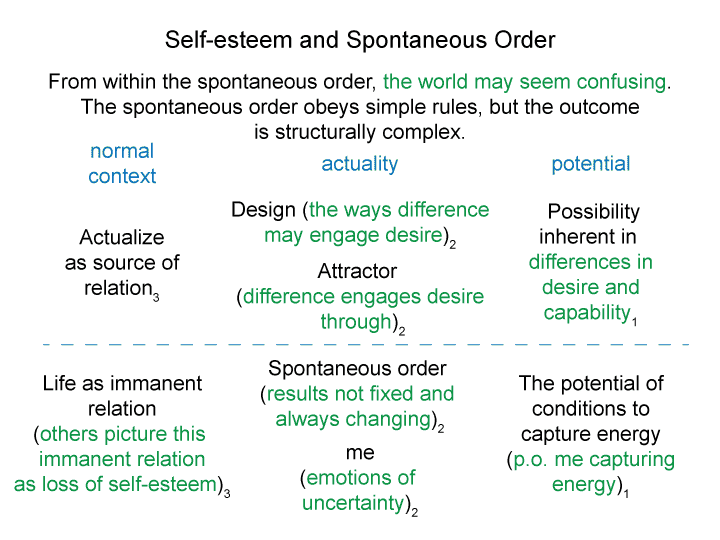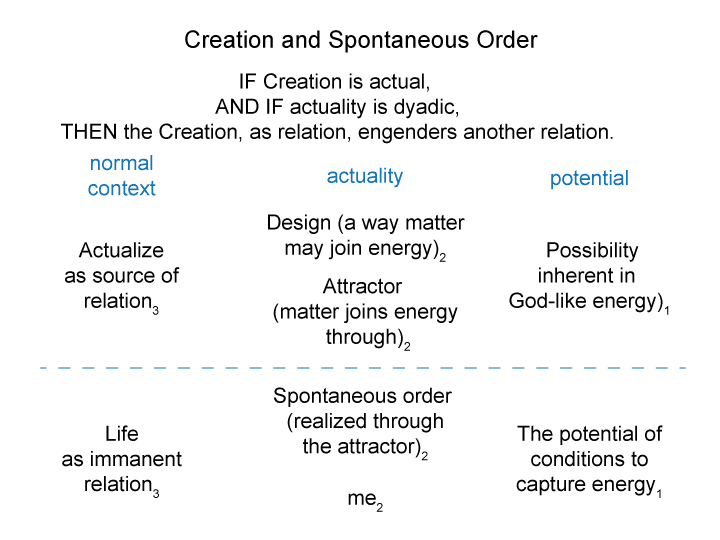Man and Sin by Piet Schoonenberg (1964) 2.1CN
[Hmmm. Were the last few blogs a red herring?
Does my self-esteem reflect my fears as a limited creature in a cultural spontaneous order?
Or does my self-esteem express the nature of the self-reflective creature?
Or does my self-esteem arise when “I recognize myself” as “within a spontaneous order that realizes itself through an attractor that is contiguous with God’s design”?
Nature speaks to the wonder of God.
“I do not lack self-esteem” when “I recognize myself as an image of God”.]


